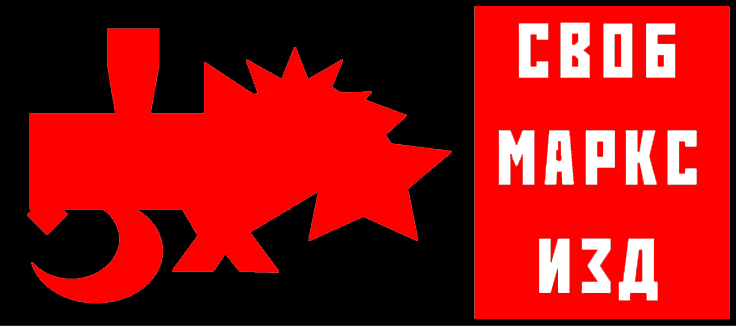 A copy of Alexei Tsvetkov’s latest book published by the radical Russian publisher ‘Free Marxist Press’.
A copy of Alexei Tsvetkov’s latest book published by the radical Russian publisher ‘Free Marxist Press’.
Back in Russia – and that means one of my first trips will be to the two bookshops where you can be sure that all the necessary books are to be found. Since Moscow is a city with a decreasing number of bookshops- according to a report by the Moscow Times in late July there are now only 226 bookstores for a population of 12 million and few of these bookstores will stock radical publishers my first trips are to Falanster and Tsiolkovsky. Tsiolkovsky, indeed, is associated with the writer Alexei Tsvetkov whose latest book is the first book I rushed out to buy.
 The writer Aleksei Tsvetkov at Tsiolkovsky bookshop.
The writer Aleksei Tsvetkov at Tsiolkovsky bookshop.
Tsvetkov, the writer and activist (not to be confounded with an older generation Alexei Tsvetkov – also a writer but more a poet and essayist rather than an essayist, novelist and activist that would describe the younger Tsvetkov) was recently awarded the prestigious literary award, the Andrey Bely prize for his book novel ‘The King of the Drowned’ and has written a fine book entitled ‘Pop Marxism’ that surely deserves some consideration from foreign publishers regarding having it translated. The new book by Tsvetkov is a pun on a military command and could be rendered something like ‘Column Left Marx’. In a Facebook remark a few months ago Tsvetkov joked about writing a book entitled ‘Fifty Shades of Red’ and this surely would be a fine title. It moves from Tsvetkov’s superlative essay on the Last Soviet Marxist Evald Ilyenkov (which I translated here) to another similar piece on Lenin’s rival Bolshevik philosopher and sci-fi author Alexander Bogdanov . Considerations on the Russian revolution and the figure of Lenin are then followed by a piece on What Is Contemporary Marxism? And then finally we move to the German Red Army Faction (RAF- Three Red Letters).
From the Rote Armee Fraktion to Fassbinder marks the barrier from politics and theory to the cultural front with Tsvetkov attempting to answer the question ‘what makes Fasbinder a comrade?’ Tsvetkov stays with film trying to explain how we can understand the apparent ‘Hollywood Marxism’ of films such as Hunger Games, Elysium etc. After a piece on Besson’s Lucy, Tsvetkov takes us into the realm of poetry where he gives us a political map of Russian poets: liberal stoics, rightist national pessimists and leftists awaiting Mayakovsky finally find a classifier who can write with some nuance on their political stances. Political music is the next subject. Finally in the cultural section Tsvetkov explores the magazine Bolshoy Gorod and dissects their cultural politics with the suggestive subheading of ‘An attempt at a Class Reading of Liberal Propaganda’. Then Tsvetkov subsection number three is entitled ‘Personal’ but here, of course, the personal is political. Chapter titles are ‘My First Meeting’, ‘My First of May’ and then a short piece answering the question ‘what were my first inner revolutions?’ Noting that the artist Anatoly Osmolovsky once stated that he became a leftist after viewing Godard’s ‘Pierrot le Fou’, Tsvetkov’s also undertakes an analysis of those moments of inner revolutions that turned him to the left. Further pieces describe the short-lived Russian Occupy moment – the ‘Occupy Abai’ experiment in May 2012 in Chistiye Prudi. A curious week or so in the life of Putin’s Moscow: a time when Central Moscow was occupied even by a grazing cow. A trip to London (entitled ‘London Calling or Chupa Chups with Marijuana’) and a piece on Tsvetkov’s intriguing ‘eurodroog’ (I’m not sure if this Burgess neologism exactly fits but neither does ‘Euro friend’ quite capture this character) and their conversations about Russia. The final section is devoted to childhood- though, mainly Tsvetkov’s daughter appears at the main interlocutor and dramatis personae in this section. I remember Toni Negri’s first translator into English once telling me how he sent a letter to him (probably before emails) asking him how Negri would explain the Marxist theory of time to his seven year-old daughter. Negri, apparently, never replied. Emery surely had the wrong interlocutor, for Tsvetkov shows us how in both this book and in his earlier ‘Pop Marxism’ there is a leftist thinker prepared to explain Marxism as much to his young daughter as to political activists and university students but then, as Tsvetkov suggests with his first piece here entitled ‘The Child as Teacher’, it is as much his daughter who explained Marxism to him as vice versa. The pieces here entitled ‘Children’s Politics’, ‘Children’s Mysticism’ and discussions of Soviet children’s literature such as ‘Neznaika on the Moon’ are promising leads to a new genre in which Marxist thought can be formulated.
By the way Tsvetkov’s book has just been nominated for the Nose Literary Award. The award is based on the number of votes from the public and Tsvetkov has promised to sing the Internationale from the stage if awarded main prize. So get voting! Tsvetkov’s book is published by Kirill Medvedev’s excellent and undersung Free Marxist Press. I’ve already written about their excellent volume entitled ‘Sex of the Exploited’ and in my next post I hope to mention a few more books by this publisher – including Medvedev’s own translations of the poetry of Victor Serge and Kirill Adibekov’s fine translations of Kenneth Rexroth (Abdibekov’s is one of Russia’s most interesting, but lesser known, film curators) and has worked on some fine film programmes for one of Russia’s best film festivals 2morrow/Завтра Another book discovered at Tsiolkovsky yesterday was Ilya Falkovsky’s ‘Book of the Living’ -a kind of veiled autobiography by another extraordinarily important figure in Russia’s underground culture who needs to be discovered soon. But all this is for a future post.

The logo for Kirill Medvedev’s Free Marxist Press